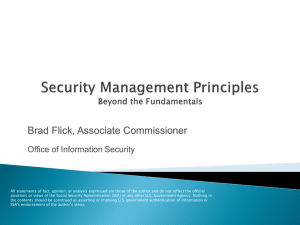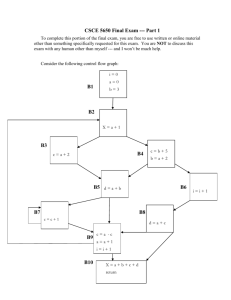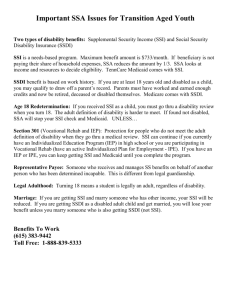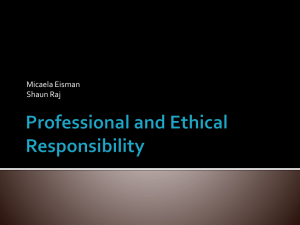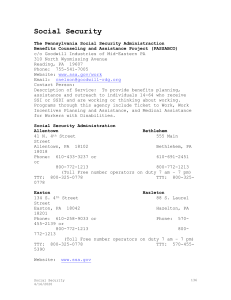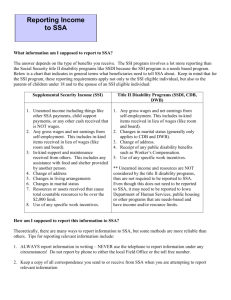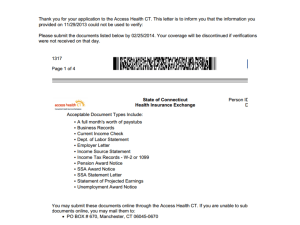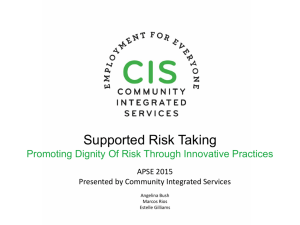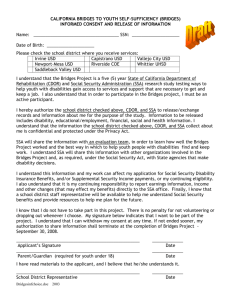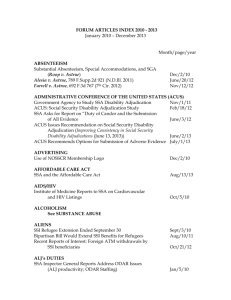Checklist for Applying for Social Security Disability and
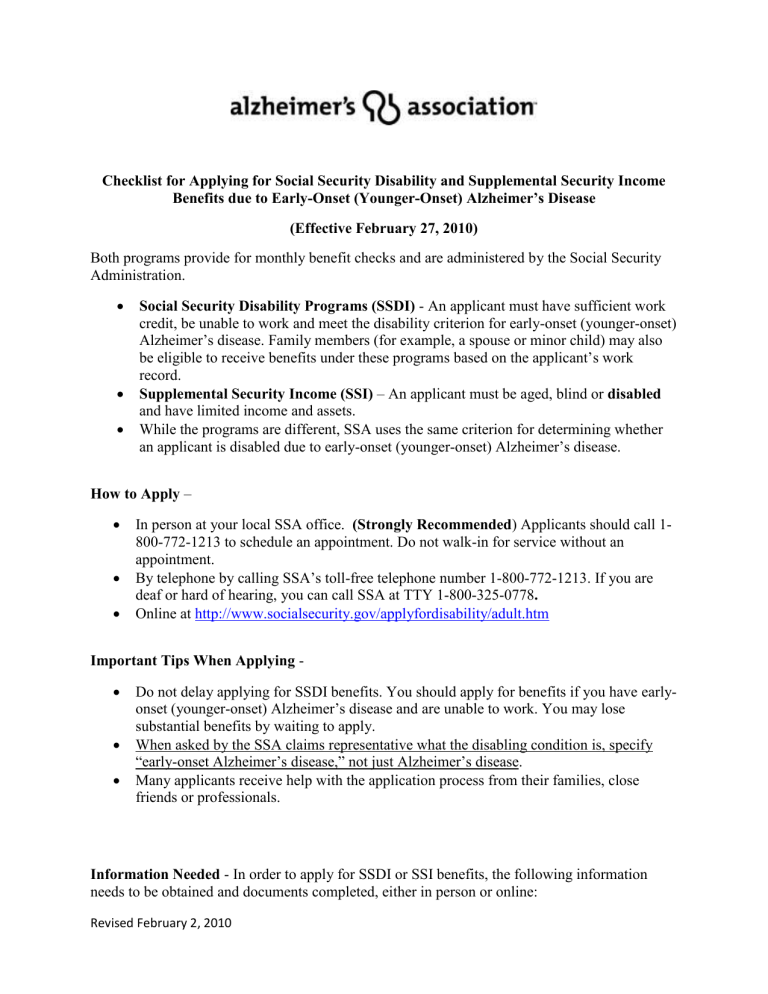
Checklist for Applying for Social Security Disability and Supplemental Security Income
Benefits due to Early-Onset (Younger-Onset) Alzheimer’s Disease
(Effective February 27, 2010)
Both programs provide for monthly benefit checks and are administered by the Social Security
Administration.
Social Security Disability Programs (SSDI) - An applicant must have sufficient work credit, be unable to work and meet the disability criterion for early-onset (younger-onset)
Alzheimer’s disease. Family members (for example, a spouse or minor child) may also be eligible to receive benefits under these programs based on the applicant’s work record.
Supplemental Security Income (SSI) – An applicant must be aged, blind or disabled and have limited income and assets.
While the programs are different, SSA uses the same criterion for determining whether an applicant is disabled due to early-onset (younger-onset) Alzheimer’s disease.
How to Apply –
In person at your local SSA office. (Strongly Recommended ) Applicants should call 1-
800-772-1213 to schedule an appointment. Do not walk-in for service without an appointment.
By telephone by calling SSA’s toll-free telephone number 1-800-772-1213. If you are deaf or hard of hearing, you can call SSA at TTY 1-800-325-0778 .
Online at http://www.socialsecurity.gov/applyfordisability/adult.htm
Important Tips When Applying -
Do not delay applying for SSDI benefits. You should apply for benefits if you have earlyonset (younger-onset) Alzheimer’s disease and are unable to work. You may lose substantial benefits by waiting to apply.
When asked by the SSA claims representative what the disabling condition is, specify
“early-onset Alzheimer’s disease,” not just Alzheimer’s disease.
Many applicants receive help with the application process from their families, close friends or professionals.
Information Needed - In order to apply for SSDI or SSI benefits, the following information needs to be obtained and documents completed, either in person or online:
Revised February 2, 2010
Application for SSDI benefit (attach link to SSA) o There is no online SSI application at this time
Medical Release Form (SSA-827) (attach link to SSA)
Adult disability report (attach link to SSA or document)
Medical and Job Worksheet – optional but very helpful for interview (attach link to SSA or document)
Original or certified copy of your birth certificate o If born in another country, proof of age, and U.S. citizenship or legal residency
Original or certified copy of military discharge papers, if you were in the military
If you worked, a copy of the W-2 from last year or if self-employed, a copy of the federal tax return with Schedules C and SE
Workers’ compensation information, if applicable
Social Security numbers for spouse and minor children, if applicable
Your checking and/or savings account numbers, if you have them
Name, address and phone number of a person SSA can contact if unable to reach you
Medical Information Needed - to prove that you have been diagnosed with early-onset
(younger-onset) Alzheimer’s disease:
You will need the name, address and telephone number of your health care providers, including primary physician, neurologist, neuropsychologist and/or psychiatrist.
You will need the name and dosage information for all the medications that you are taking or have taken, especially for the early-onset Alzheimer’s disease.
If you can, you should collect medical records from your health care providers, including primary physician, neurologist, neuropsychologist and/or psychiatrist. It is very helpful and important for the health records to show that there is progressive decline in function or test scores over time. o If you do not have the medical records, SSA will help obtain them for you but this may delay the determination process.
Pertinent clinical information which should be included in the medical records, if available, includes: history of onset (approximate time when symptoms began); description of cognitive and functional impairments at home and at work; results from neurological, cognitive or neuropsychological examinations; and results from neuroimaging.
Activities of daily living report or similar report completed by a relative or caregiver
Documentation of dementia by standardized testing, such as Clinical Dementia Rating
(CDR) with a score of > 1, Mini Mental State Exam (MMSE) of < 24, or equivalent test, is helpful.
After You Apply –
The Social Security office will assist you in filing the application for benefits, but the actual medical decision is made by a disability case examiner in your state, usually working for an agency called the "Disability Determination Service" or "Disability Determination Bureau." If
Revised February 2, 2010
you receive written correspondence or a phone call from a disability examiner, that person is working on your claim and requires your cooperation.
Helpful Resources
The Alzheimer’s Association www.alz.org
The SSA has a wealth of information on its webpage at www.socialsecurity.gov
Specifically, there is a Social Security Disability Planner at http://www.socialsecurity.gov/dibplan/index.htm
Revised February 2, 2010
